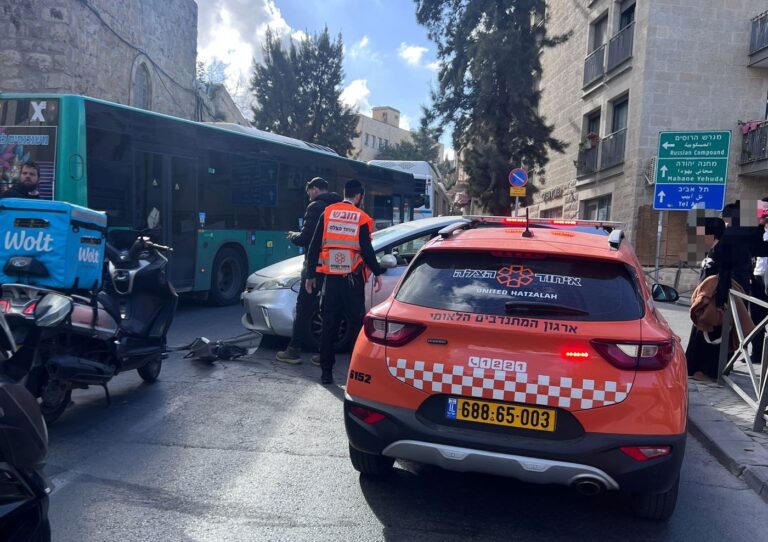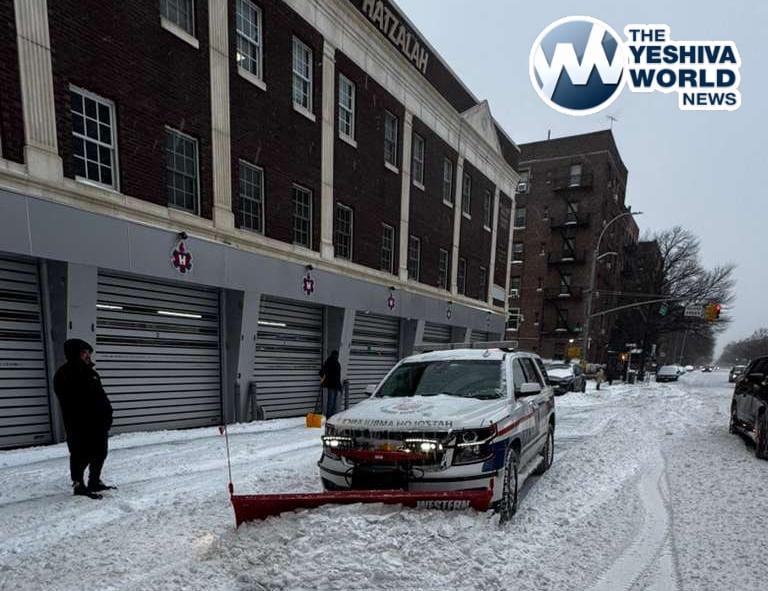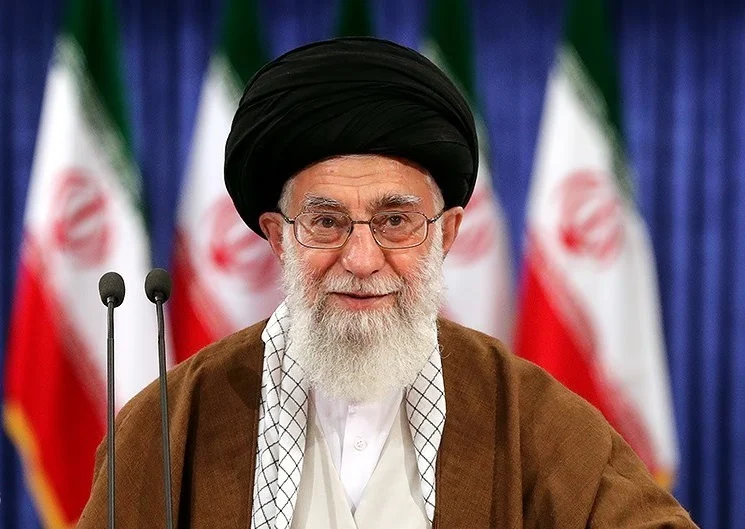 [By Rabbi Yair Hoffman]
[By Rabbi Yair Hoffman]
Everyone in the Five Towns knows about it and, at times, many dread it. It is known unofficially as the Gourmet Glatt parking lot, but it is actually a municipal lot with metered parking. In this article we will discuss some of the halachic issues that may arise when parking in this lot. These issues may also come up in the Brach’s parking lot, but as a general rule the Brach’s lot has fewer halachic implications related to parking, as we shall soon see.
First and foremost, one should realize that it is possible to fulfill a biblical mitzvah when dealing with the Gourmet Glatt parking lot. How so?
The Trapped Car
Let’s paint the scenario. Say that one has parked very near the western entrance of the parking lot, near Washington Avenue. When he or she is ready to leave, how long will it take that driver to get out of the spot?
Most local drivers knows that if one parks in the six or seven spots closest to the entrance and exit, it is nearly impossible to get out—because people do not pause to let you out. Often a car will actually speed up in order to prevent a parked car from pulling out. These cars are essentially trapped by the incoming and outgoing traffic.
Most people are aware that the mitzvah of gemilus chassadim, of doing kind acts for others, is a rabbinic delineation of the Torah principle of “V’ahavta l’rei’acha kamocha,” loving your neighbor as yourself. When performing gemilus chassadim, one of course fulfills a Torah commandment. Indeed, the Mishnah tells us that gemilus chassadim is one of the three pillars that hold up the entire world.
Three Issues. Nonetheless, there is a question whether this mitzvah can be fulfilled with thought or inaction alone. In other words, perhaps the fulfillment of this mitzvah requires some physical activity. Does merely not accelerating in such a situation constitute a fulfillment of this Torah mitzvah?
Also, there are those who feel, “Look, these people knew the risks when they parked there. You made your bed—now lie in it.” Do we say that since they knowingly parked in the “trap zone” this would negate any mitzvah of V’ahavta l’rei’acha kamocha?
A third issue may come into play here as well. Who says that one may fulfill chesed at the expense of other cars behind him? Perhaps those drivers are also in some sort of terrible rush and do not appreciate the extra 15 seconds needed to release one of the trapped cars.
We will deal with each of these points one at a time.
Rav Alechsander Ziskind of Grodno, zt’l (d. 1794), author of the sefer Yesod v’Shoresh HaAvodah, seems to answer our first question (see Shaar 1 Chapter 4). He writes that it is possible to fulfill some mitzvos in the restroom, a place where it is generally forbidden to study Torah. Rav Ziskind writes that if while in the restroom one feels truly happy for a friend’s good fortune, he has fulfilled the mitzvah of V’ahavta l’rei’acha kamocha. For example, if a friend’s child recently got engaged, one can fulfill the mitzvah of loving his neighbor merely by expressing a feeling of happiness. According to this view, one can certainly fulfill this mitzvah by allowing one of these trapped vehicles out.
Rav Yitzchok Zilberstein, shlita, son-in-law of Rav Elyashiv, zt’l, in his Chashuchei Chemed on Berachos (32a) seems to understand the Mishnah Berurah (156:4) as requiring a full action and not merely a thought. I respectfully disagree with this reading of the Mishnah Berurah. It could very well be that the Mishnah Berurah is just giving examples of fulfilling the mitzvah without negating the fact that it may also be fulfilled in thought.
What about the factor that drivers knew the risks of parking in one of those spots? I would like to suggest that the Gemara in Bava Metzia (9b) indicates that a person can make himself eligible for ma’aser ani through the legal vehicle known as “migo”—in this case, the fact that he could at any moment just give up ownership of all his possessions. If the notion of “he knew the risks when he parked there” disqualifies the driver from being a recipient of chesed, then this principle should not work. There is also the additional factor that the hapless driver may have been unaware of the extent and duration of his or her entrapment.
As far as causing damage to others (the other drivers behind him waiting to get out of the lot), perhaps we can apply a ruling of the Baalei haTosfos (B.M. 10a, “Amar Rav”). There, we see that there is no concept of causing problems for others when taking a found object and obtaining ownership for a friend. So maybe there is no problem here as well. How so? The car owner may certainly stop for a moment to let a passenger out, so he may stop for someone else as well. Thus all three objections to this biblical mitzvah have been dealt with.
‘I Saw It First!’
Another question is that of the rights to a parking spot. Should the person who eyed it first be entitled to it? Or should the first car that is able to maneuver into it be entitled to it? The Shulchan Aruch (C.M. 268:1) clearly indicates that seeing something first does not give the person any right of ownership. However, it is clear that if a person both saw it first and made an effort to park in that spot, it would be morally reprehensible to “steal” the spot from him. Feigning ignorance or “not seeing” is also immoral, which is why there are so many verses in the Torah that end with “I am Hashem your G d.” Hashem knows exactly what transpires in the mind of everyone.
Also, there is Rashi’s understanding of a halachic concept called “ani ha’mehapech b’chararah.” Literally this term means “a poor person who is looking at a piece of cake.” The halachah is that it is forbidden to take it out from under him. The Talmud (Kiddushin 59a) tells us that it is forbidden to purchase an item ahead of someone else who has already entered into an agreement to purchase it and has agreed upon a price with the owner. The Gemara gives an illustration of such a case: Rav Gidel wished to purchase a certain property and Rav Abba ended up buying it. Although that case turned out differently, it is clear from the Gemara that one who does so knowingly is labeled a “rasha,” an evildoer. This is also the halachah as codified in the Shulchan Aruch (Choshen Mishpat 237:1).
Rashi explains that the concept also applies to someone who is looking to obtain something for free, and it is not limited to cases of business dealings. The Baalei Tosfos disagree with Rashi and explain, based upon answering an apparent contradiction from another section of the Talmud, that it applies only to business dealings. The reasoning is that free items are almost impossible to be found. Therefore, the prohibition of “ani ha’mehapech” would not apply to something so rare.
Whether the author of the Shulchan Aruch rules like Tosfos or Rashi is not so clear-cut. According to Rashi, the principle of ani ha’mehapech may forbid a person from stealing the parking spot. Indeed, even according to the view of Tosfos, it may be prohibited because the parking involves a transaction. This second issue would not be applicable in the Brach’s lot, according to Tosfos, but it would according to Rashi.
Parking And Not Paying
The next question is: May one park at a meter that is expired and have in mind not to pay? Aside from this being risky behavior, as the cost of a ticket is well over 100 times the cost of paying the meter, it may also have halachic problems—namely, trespassing. The Rashbam (Bava Basra 57b “L’kulah”) indicates that there is a prohibition of sho’el shelo mida’as—which is a form of theft—for property as well. Thus, if one had in mind beforehand to not put a quarter in the meter, it may be considered theft. The reason why the municipality is allowed to ticket is that a person does not have the right to park without paying. It may thus halachically be considered a form of trespassing.
• • •
We have discussed three issues in regard to the Gourmet Glatt parking lot. The Brach’s lot doesn’t have the same trapped-car predicament. And, because it is a private lot, the parking-meter question doesn’t apply either. The “I saw it first” issue, however, does apply to the Brach’s lot according to Rashi, but not according to Tosfos.
As in all matters of halachah, one should check with one’s own rabbi or posek regarding specific applications and understandings of finer points of halachah. In the meantime, as we shop for Purim, happy parking!
The author can be reached at [email protected].











4 Responses
I guess Season’s parking lot is a balagan.
What about bank parking for customers only and people park there to go shopping or to the gym Lots full no one in bank
Regarding whether a mitzvas asei requires a physical act, isn’t there a Talmudic principal “dvarim she’b’lev ainam dvarim” (essentially, thought alone cannot substitute where an act is required)?
Please do not write an article in a sectarian manner when need not do so.This type of problem applies all over. You should only mention specific cases as examples.
What about free parking but only for their business and they could call to tow but almost definitely won’t.